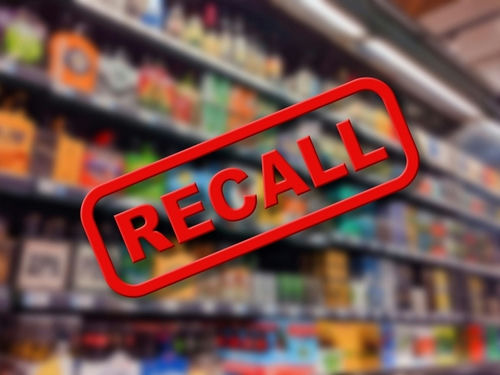President Trump’s administration is taking decisive action to tackle the latest wave of food recalls that threaten American families with potentially deadly bacterial contamination.
Widespread Food Recalls Due to Bacterial Contamination
In recent weeks, a series of food recalls have swept across the United States, the United Kingdom, Ireland, and Australia. These recalls, initiated in July and early August 2025, involve a wide array of products such as ready-to-eat salads, snack trays, and freeze-dried fruits. Affected products have been found contaminated with dangerous bacteria including Salmonella, Listeria monocytogenes, and Clostridium botulinum. This alarming situation has prompted urgent alerts from health authorities, urging consumers to check their pantries immediately.
The recalls were triggered by various factors, including illness reports, supplier tracebacks, and rigorous regulatory testing. The contamination threatens not only consumer health but also the reputation of major grocery chains and brands. Retailers such as Albertsons, Randalls, and Jewel Osco in the US, along with Lidl and Hogan’s Farm internationally, have been affected. The cross-border nature of these recalls highlights the global interconnectedness of food supply chains.
Regulatory Bodies and Their Role
The U.S. Food and Drug Administration (FDA), the U.S. Department of Agriculture (USDA), and equivalent agencies in other countries are spearheading the response to this crisis. These organizations are responsible for issuing recalls and ensuring that affected products are removed from store shelves. Simultaneously, they are conducting investigations to trace the origins of contamination and prevent future incidents. The involvement of these agencies underscores the significance of maintaining strict food safety standards to protect public health.
The recalls have been notably broad, reflecting the extensive reach of modern food distribution networks. Suppliers such as Reser’s Fine Foods and Doehler Dry Ingredient Solutions have been identified as links in the contamination chain. This situation stresses the importance of stringent supplier verification processes and rapid response systems to mitigate risks associated with foodborne pathogens.
Impact and Future Implications
In the short term, these recalls pose a significant risk to consumers, particularly vulnerable populations like the elderly, immunocompromised individuals, and children. The financial repercussions for manufacturers and retailers are considerable, with potential long-term impacts on consumer trust in food safety systems. As investigations continue, there is a growing call for enhanced regulatory measures and stricter supplier controls to fortify food safety protocols.
Experts emphasize the importance of consumer vigilance in adhering to recall instructions to prevent illness. The Trump administration is committed to addressing these challenges by working closely with industry stakeholders to enhance safety measures and protect American families. As new developments arise, it is crucial for consumers to stay informed and proactive in safeguarding their health.
Sources:
ContagionLive: July 2025 FDA Food Recalls
eFoodAlert: Recalls and Alerts July 31–August 1, 2025
FoodSafety.gov Recalls and Outbreaks

